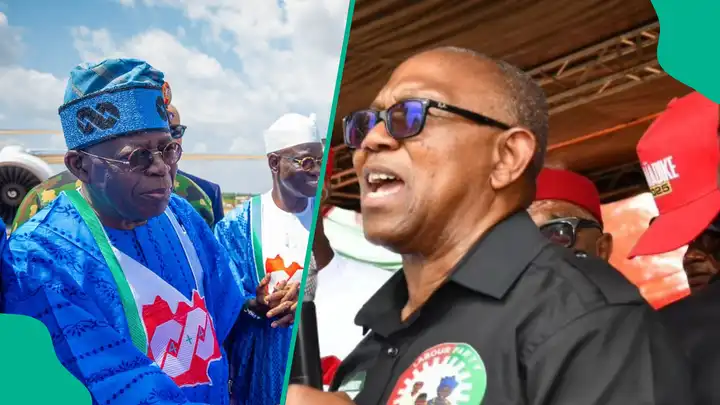2027: The Big Decision Before the North
Tinubu, Jonathan, Atiku, Obi, Amaechi in the Race for Northern Support
By Clifford Ndujihe – Politics Editor
As Nigeria inches closer to the 2027 general elections, the North finds itself in a political dilemma. With five major contenders eyeing the presidency, the question on everyone’s lips is: Who will the North support this time?
On the list are familiar names – President Bola Ahmed Tinubu, former Vice President Atiku Abubakar, ex-President Goodluck Jonathan, former Anambra Governor Peter Obi, and ex-Rivers Governor Rotimi Amaechi. Each one has their strengths, weaknesses, and history with the North. But the stakes are much higher this time. The North has always been a decisive factor in Nigerian presidential elections. In 2023, over 5 million of Tinubu’s 8.79 million votes came from the region. But that support is no longer guaranteed.
There’s a growing feeling among northern political heavyweights that it’s time for a Southern president to serve a single term, then return power to the North in 2031 — in line with the unwritten power rotation agreement. That’s the big conversation now dominating political circles in the North.
Tinubu came into office riding on strong northern support. But two years into his presidency, the excitement has cooled in many quarters. Critics in the North accuse him of marginalizing the region, pointing to lopsided appointments, budget allocations, and lack of visible development.
Some northern leaders, including Atiku, Nasir El-Rufai, Tambuwal, and Governor Bala Mohammed, believe the North deserves more. They argue that the hardship across the country — worsened by inflation, fuel subsidy removal, and insecurity — has hit northerners especially hard.

To calm tensions, Tinubu’s camp recently hosted a high-level meeting in Kaduna, led by SGF George Akume and Minister Atiku Bagudu, to highlight what the administration has done for the North so far. There’s also talk of Tinubu working with Kwankwaso to secure critical support in the North-West.
Among those being considered as a “compromise candidate” is former President Goodluck Jonathan. Once seen as the leader who lost the North’s trust in 2015, Jonathan is now surprisingly getting warm support from some top northern power brokers.
His peaceful handover to Buhari in 2015, a rare moment of political maturity in Nigeria’s history, is earning him fresh respect. PDP insiders confirm several meetings have taken place – both in Nigeria and abroad – to convince Jonathan to return to the race.
But there’s a legal question. Jonathan was sworn in twice, and a 2018 constitutional amendment bars anyone in that category from running again. Will the courts allow it? Or will the North take the risk anyway just to stop Tinubu?
Peter Obi may have come third in 2023, but his performance was historic. He won 11 states and the FCT — mostly without a party structure. That momentum hasn’t faded. He’s stayed active, traveling, engaging with the public, and pushing for good governance.
Obi is still aligned with a broad opposition coalition under the ADC, alongside Atiku, El-Rufai, Tambuwal, and Amaechi. Despite internal fears that these powerful figures might clash over ambitions, they insist their main focus is to end APC’s rule.
Like Jonathan, Obi has promised to serve just one term — a strategic move to win northern support. But critics worry the promise may not hold water, as Nigerian politicians have a history of changing tune once in power.
Former Minister of Transport Rotimi Amaechi is another southern contender with significant northern support. During his time in office, he spearheaded key projects in the North — including the railway to Maradi, Niger Republic, and a transport university in Daura.
In the APC 2023 primaries, he came second to Tinubu and got a large chunk of his votes from the North. He, too, has promised to serve only one term if elected — a position that may appeal to the North’s long-term strategy.
At 76, Atiku Abubakar is no stranger to presidential politics. He’s run multiple times — and lost. In 2023, he won the North-East but failed to sweep the rest of the North or make significant progress in the South.
Now flying the flag of the ADC, Atiku insists he’ll serve just one term to allow the North reclaim the presidency in 2031. But with age no longer on his side and previous losses stacking up, even his loyalists are asking if it’s time for a new face.
The North’s choice in 2027 will shape Nigeria’s future — again. Will it stick with Tinubu for continuity, embrace Jonathan for a peaceful reset, give Obi or Amaechi a shot under a single-term deal, or rally around Atiku one last time?
The coming months will reveal more, but for now, the battle for northern support is wide open — and it could go any direction.